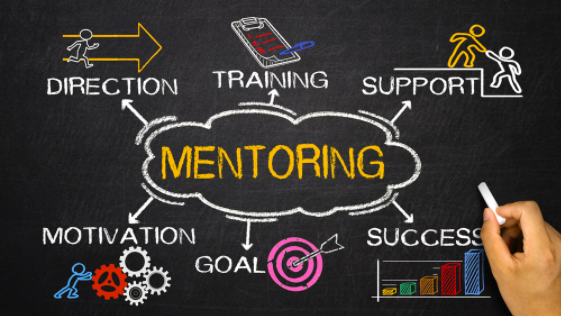While having a mentor can have a critical effect on your life, being one can likewise be a significant experience—that accompanies a ton of obligation. An extraordinary mentor doesn’t simply give direction and answers during professional transition or dilemmas; they additionally give inspiration and motivation to help their mentee get to the significant level and justify his/ her potential. Cassandra House, a seasoned entrepreneur, and educator who is passionate about teaching and innovation in learning.
What Makes a Good Mentor?
Some significant qualities in a decent mentor incorporate tolerance and listening abilities. The best mentor takes in what’s going on, evaluates the way the mentee is on, and afterward directs the individual onto the correct track. Mentoring is as much about guiding as it is moving information and leadership abilities. That takes practice, and the mentor must be eager to let the mentee commit errors and take a stab at attempting them once more.
Communicate and Listen:
Your mentee ought to eventually manage their own professional way. You assist them with accomplishing whatever it is they need to accomplish. Try not to infuse a lot of your desires or sentiments into their plan. Get some information about their yearnings just as their assumptions for you. For instance, would they say they are searching for help, direction, or knowledge?
Make a point to focus on your methodology. For example, possibly you need to help somebody who’s encountering a comparative circumstance as you did, or maybe you need to give somebody opportunities they don’t approach.
Offer Constructive Criticism:
While you would prefer not to pass judgment or irritate your mentee, you shouldn’t channel your criticism to try not to hurt them. There is an approach to convey analysis without breaking their certainty. Sharing your experience is an extraordinary method to communicate something specific without scrutinizing them straightforwardly. For instance, inform them regarding a misstep you made and how you gained from it. On the off chance that the mentee is savvy, they will observe and decode the hidden message: “Don’t do what I did, and here’s the reason.” The fact of the matter is to instruct, not destroy the individual.
Cassandra House said you should be both prudent and tactful while passing on your judgment.
Practice Empathy:
It’s essential to relate with your mentees and comprehend their viewpoint and emotions. On the off chance that they’re having an awful day, you should get on their energy and work to help them through it.
“Empathy is an indispensable quality every decent mentor possesses, Cassandra House said. “You must have the ability to see what your mentee is going through and how to best move toward helping them.”
You may assume empathy can’t be instructed, yet with training, you can accomplish more significant levels of compassion and empathy. This requires exertion: listening more, being interested about others, valuing the individuals who are not quite the same as you, enlightening any intrinsic decisions, and instructing yourself to break bogus marks of disgrace and oblivious ideas.

Let your Mentee Make Decisions:
Perhaps the main skill a mentee needs to gain, with your direction, is the capacity to think on the spot with contending requests and high pressing factors. Some call it creativity; others call it good judgment. Whatever you call it, your mentee must have the option to tackle issues on the fly. Your part as a guide is to assist them with building up those aptitudes.
Consider yourself a driving teacher: You’re sitting in the traveler’s side, permitting your mentee full control of the excursion. Notwithstanding, you’re still there to offer counsel and bearings or to pull off the emergency break if necessary.

